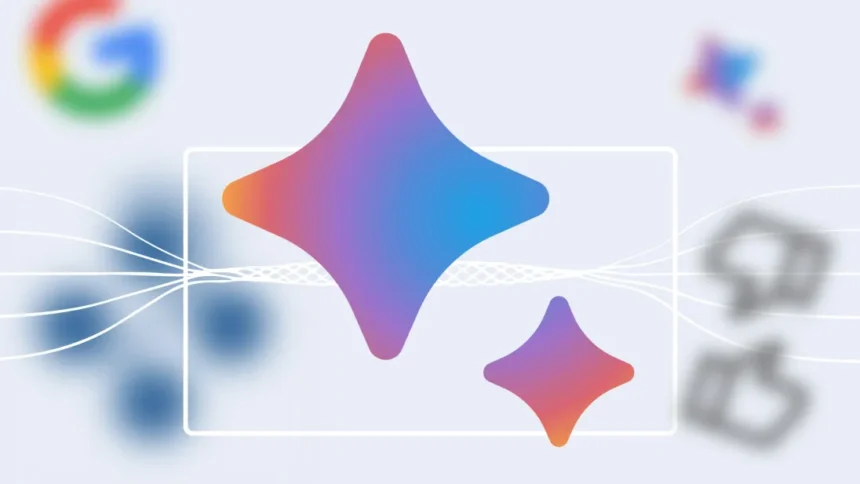In a strategic shift, Google is pulling its AI assistant, Gemini, from the main Google app on iOS devices. The move is aimed at directing users toward the standalone Gemini app, a decision that could help Google compete more directly with other AI-driven chatbots like OpenAI’s ChatGPT, Anthropic’s Claude, and Perplexity. However, this change also comes with potential risks, as the Google app already enjoys widespread adoption, and not all users may be inclined to download an additional application.
The Transition: What’s Changing?
Google has officially started notifying users via email about this transition, stating plainly, “Gemini is no longer available in the Google app.” This message leaves no room for ambiguity—users who want to continue using Gemini on iOS must now download the dedicated Gemini app from the App Store.
Previously, Gemini was accessible within the primary Google app, allowing millions of users to experiment with AI-powered interactions without having to install a separate app. Now, Google is betting that a dedicated Gemini app will offer a more refined and feature-rich experience while allowing for faster innovation and improvements in AI capabilities.
What the Standalone Gemini App Offers
For users who opt to make the switch, the Gemini app for iOS comes with a host of features designed to enhance AI-driven interactions. With this app, users can:
- Engage in Voice Conversations: The introduction of Gemini Live allows users to interact with the AI through voice commands, making conversations feel more natural and intuitive.
- Integrate with Google Services: Users can connect Gemini with their Google apps like Search, YouTube, Maps, and Gmail, offering a seamless AI-assisted experience across multiple platforms.
- Plan Trips & Get AI-Powered Insights: Whether planning a vacation or researching complex topics, Gemini provides summaries, deep dives, and AI-generated insights.
- Create AI-Generated Images: The app enables users to generate visuals, making it a useful tool for creatives and professionals alike.
- Interact via Multiple Inputs: Gemini supports not just text and voice but also camera input, expanding the ways users can interact with AI.
Additionally, for those seeking an even more advanced AI experience, Google is offering Gemini Advanced as part of its Google One AI Premium plan, available as an in-app purchase within the Gemini app.
The Potential Risks: A Gamble on User Behavior
While Google’s move makes strategic sense in terms of long-term AI development, it’s not without risks. The Google app is already installed on millions of devices, making Gemini’s integration highly accessible. By requiring users to take the extra step of downloading a new app, Google runs the risk of losing casual users who might not be motivated enough to make the transition.
To mitigate potential drop-off, Google has implemented a seamless redirect process. If an iOS user attempts to access Gemini through the main Google app, they will see a full-screen message stating, “Gemini now has its own app,” along with a direct link to the App Store for easy downloading.
However, history suggests that requiring additional downloads can lead to friction. Some users may view this as an unnecessary hurdle and opt not to use Gemini at all, reducing its overall adoption and reach. Whether this gamble pays off or not remains to be seen.
Why Google Might Be Making This Move
Google’s decision likely stems from several key motivations:
- Faster Feature Rollouts: A standalone app allows Google to introduce new AI capabilities without being tied to the update cycle of the main Google app.
- Competitive Positioning: By creating a dedicated AI assistant app, Google positions Gemini as a direct competitor to ChatGPT, Perplexity, and Claude, rather than as just another feature within its broader ecosystem.
- Monetization & Subscriptions: With the integration of Google One AI Premium, Google has a clear opportunity to drive paid subscriptions, something that might be harder to promote within the main Google app.
- Enhanced User Experience: A dedicated app allows for more focused AI interactions, potentially making the user experience more engaging and effective.
Final Thoughts: A Step Forward or a Step Too Far?
Google’s decision to shift Gemini out of the main Google app and into its own standalone space is a bold and calculated move. While it may improve AI functionality and speed up innovation, it also comes with the risk of alienating some users who prefer convenience over additional app downloads.
Will users make the transition, or will they simply move on to other AI assistants that don’t require extra steps? The coming months will reveal whether this is a masterstroke in Google’s AI strategy or a miscalculation in user behavior.
For now, one thing is clear: Google is betting big on Gemini, and only time will tell if that bet pays off.










